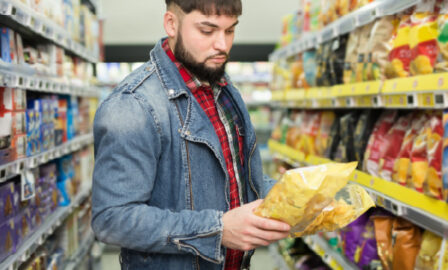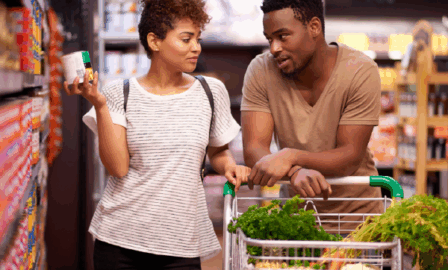2023 Beverage Industry Trends
Read our updated trends report here: 2024 Beverage Industry Trends
Clarkston’s team of beverage industry consultants have highlighted the top 2023 beverage industry trends that businesses should consider. Read all 4 trends for 2023 by downloading the full report here.
The beverage industry is in a state of constant evolution to meet rapidly changing consumer needs. No longer can manufacturers rely solely on taste or a well-known legacy brand on the bottle. These shifts in consumer preference and increased competition from trendy startup brands have caused even the most established beverage companies to reassess their portfolio and strategy to better align with new market realities.
As 2023 unfolds, the next wave of industry trends is taking hold and reshaping established norms about the beverage industry as outlined below:
- Conscious consumption is shaping the beverage industry
- Companies investing in brand building are leading the pack
- RTD experiencing explosive growth in and beyond cocktails
- Functional beverages continue to address specific consumer needs
2023 Beverage Industry Trends
Trend #1: Conscious Consumption is Shaping the Beverage Industry
Conscious consumption, which refers to the growing trend of consumers making purchasing decisions based on their personal values, continues to accelerate changes in the beverage industry. Consumers are seeking information about the nature of a product they buy and what was involved to create it, at every step in the value chain. Because consumers seek out brands that align with their ethical and environmental values, beverage companies are continuously adopting more sustainable and responsible practices.
Numerous initiatives have resulted across the industry. Some of the most common include sustainable packaging, responsible and ethical sourcing, greater transparency, and carbon footprint reduction.
While sustainable packaging is not new, companies are going beyond reducing packaging material to transform the product. For example, JUST Water is a sustainable water company that uses fully biodegradable packaging made from plant materials such as sugarcane and bamboo. And Carlsberg Group, the global beer company, has developed a biodegradable beer bottle made from sustainably sourced wood fibers.
Download the Full 2023 Beverage Industry Trends Report Here
Responsible and ethical sourcing continues to be top of mind for consumers, and companies are going beyond fair-trade certification to drive it. For example, beverage companies are mimicking food companies in direct trade agreements where companies work directly with the raw materials providers in their environment to promote sustainable agriculture. For example, Nespresso has developed partnerships with farmers in various countries, including Colombia, Costa Rica, and Ethiopia, to provide training and resources to help farmers implement sustainable agricultural practices. These range from using natural fertilizers to practicing water conservation. Nespresso also pays a premium for sustainably sourced coffee beans, which incentivizes farmers to adopt these practices.
Companies are also continuing to innovate in their carbon emission reduction efforts beyond purchasing carbon credits. Announced in 2018, Heineken continues to make headway on their “Drop the C” program, aiming to reduce carbon emissions by 30% by 2030. To support the goal, Heineken has built wind turbines and solar panels at several breweries and has signed long-term agreements to buy renewable energy. Another example is ABInBev, which has partnered with Permian Global, a UK-based forestry management company to invest in the restoration and conservation of forests in areas where the company sources agricultural commodities, such as barley and hops. The reforestation efforts are focused on degraded and deforested lands, with the goal of restoring biodiversity and sequestering carbon.
Companies are putting all these actions together in their operations and their marketing messages for consumers. This is in line with the need to also comply with recent guidelines from the FDA around the labeling of products deemed “healthy.” The new set of definitions is more comprehensive and multifaceted than in the past and is driving label or claims changes for many beverage companies that coincide with an opportunity to revisit how they message their sustainable operations. Continue reading by downloading the full report below.
Download the Full 2023 Beverage Industry Trends Report Here
Read last year’s Beverage Industry Trends Report here.
Subscribe to Clarkston's Insights
Contributions from Jake Barrett



